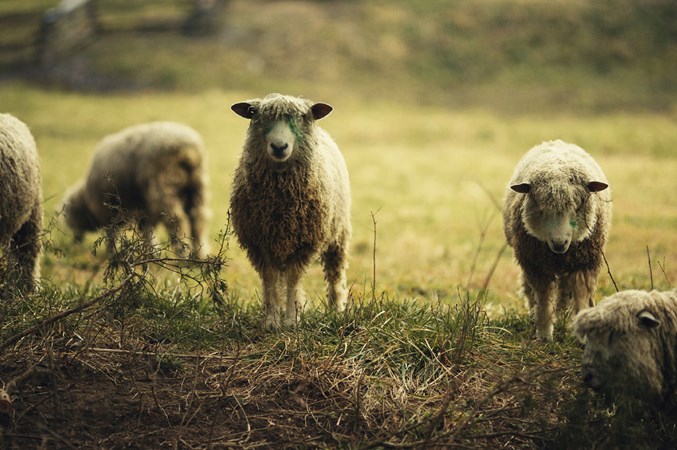8 Easy Tricks to Create Less Waste with Your Plant-Based Diet
4/19/2022

There’s no doubt about it: the world has a plastic problem.
Over the last few years, there have been multiple accounts of whales and other marine life found dead with pounds of plastic in their stomachs. Current research suggests if we don’t act fast, by 2050 there will more plastic than fish in the ocean.
Without major action by corporations and governments around the world, turning the tide can seem like a momentous task. Thankfully, YOU have the power to ignite that change and curb reckless plastic pollution by being a conscious consumer, using your voice, and demanding better—all while you #EatPlantsForAChange!
But before we dive in, let’s address a few simple questions and concerns you may have before we start.
“I recycle, isn’t that enough?” Unfortunately, no. Did you know only 9% of plastic in US recycling bins is actually recycled? This is due to a combination of contamination from poorly cleaned materials, the cost of recycling, inefficiencies in the recycling system itself, and the sheer amount of plastic we produce and consume each year. There’s a reason "recycle" is the last part of the infamous classroom phrase, “reduce, reuse, recycle”--it should be used as a last resort, not a primary solution.
“That’s not my trash, I don’t litter at the beach!” Actually, only a fraction of plastic that ends up in the ocean comes directly from beachgoers. Much ocean plastic pollution occurs in the stages before and after consumers use and dispose of their products. Because plastics are made to be so lightweight they’re easily carried by wind and rain out of transportation centers and landfills to drainage networks and rivers that flow directly into the open ocean. Further, abandoned fishing nets--not trash--make up the largest percentage of plastic floating in the ocean, which comes directly from the process of catching seafood.
“Won’t plastic just break down at some point?” Not really. Plastic never really "breaks down," rather, it simply breaks into smaller and smaller pieces. Even this process takes 400 years or more, depending on the plastic. And with more than 8 million metric tons of plastic entering our ocean every year, marine animals don’t have the time.
The best way we can reduce our global waste problem as consumers is to produce less of it—much of which comes from our diet. So to help you reach pinnacle eco-warrior status and protect our oceans, here’s our list of 8 low-waste tips you can incorporate into your daily routine!
1. Say Goodbye to Bags
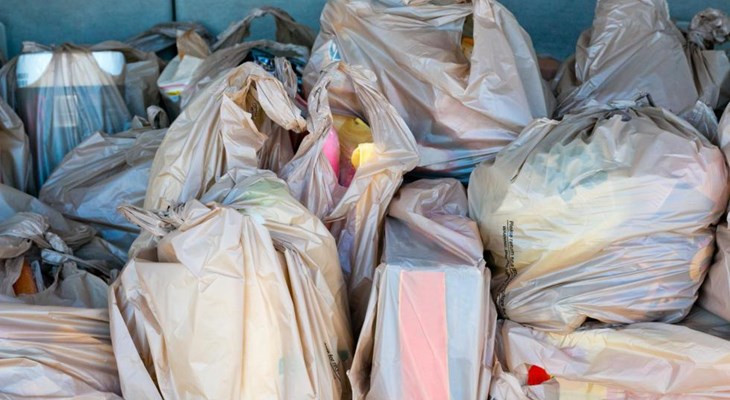
We’re long past due to get rid of the dreaded plastic bag (Depending on where you live, they may already be phased out!). Plastic bags are one of the most commonly littered plastics due to how easily they’re caught by the wind, and they are notoriously difficult to recycle. If you mix them in with your regular recyclables, you’re likely doing more harm than good. Reusable bags made of non-woven polypropylene or polyethylene with 40% post-consumer recycled plastic have been found to be the most sustainable bag options. You can often find some for free as promotional swag items or given out by your local municipality.
2. Eat More Whole, Plant-Based Foods
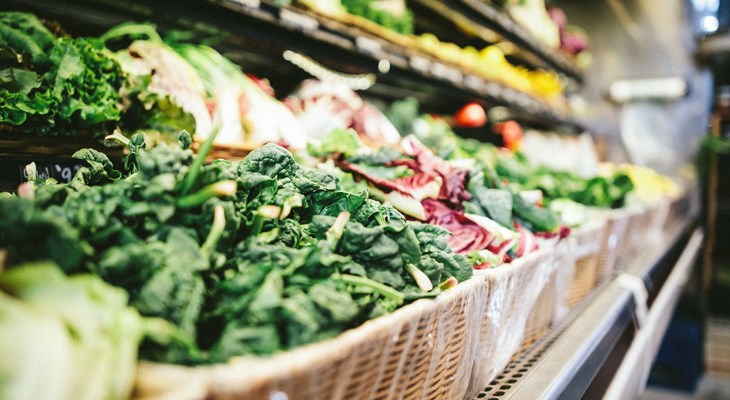
Sticking to the produce section as much as possible is your best bet for avoiding unnecessary plastics. While certain stores are better than others at selling produce sans plastic wrap, you can take another step forward by avoiding produce bags. Don’t feel pressured to buy reusable produce bags either, just put the produce right in your cart. Just make sure to wash it at home before you enjoy it (which you should be doing, anyway).
3. Buy in Bulk
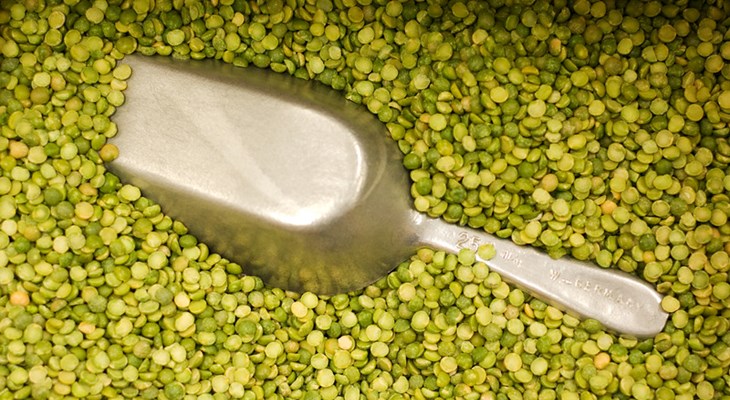
We know you hear us say this a lot, but it’s for good reason! Not only does buying in bulk reduce your grocery bill, but it is also a simple way to reduce your waste. Bring your glass containers, mason jars, or cloth bags to fill with all sorts of legumes, grains, and spices!
4. Upcycle Packaging
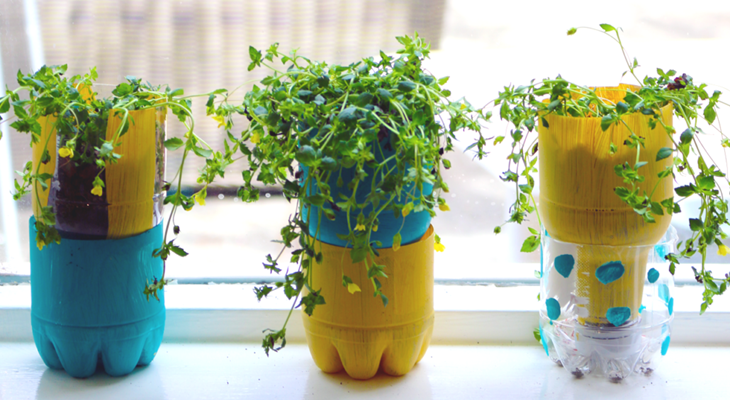
There are certain packaged foods that you just can’t do without—trust us, we understand! But if you think hard enough, you just might find a way to re-purpose that packaging. Here are some quick ideas: use bread bags to pick up and dispose of pet waste, store your leftovers in a pasta sauce jar, or turn your plant-based butter container into a planter for some fresh basil. While the goal is always to reduce the amount of packaging you purchase, making the most of what you take home can make a big difference.
5. Opt for Aluminum
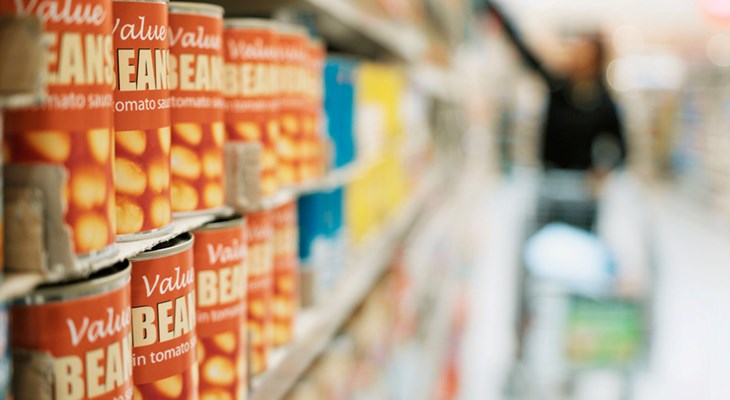
When possible, try to purchase from brands that use aluminum to package their products, as they have much higher recyclable rates and values. Similarly, ask for aluminum take-out containers instead of plastic containers. While you're at it, switch from using plastic food wrap and sandwich bags to reusable containers and aluminum foil, which you can reuse and ultimately recycle!
6. Pack a Lunch
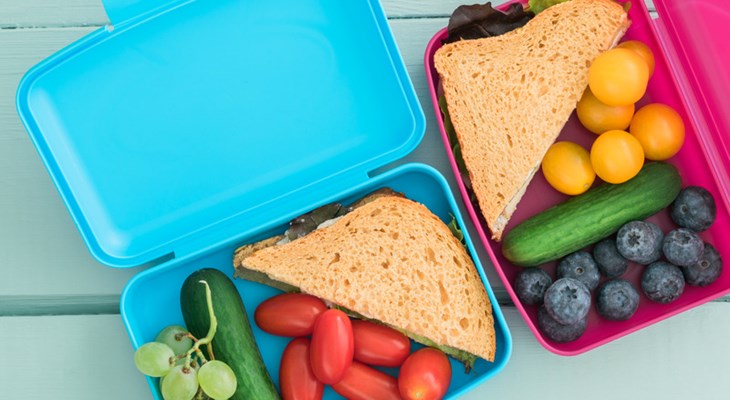
It might seem simple, but bringing your own lunch to work instead of getting takeout will substantially reduce the waste you produce. Takeout always seems to come with a plastic bag, paper wrapping, plastic-wrapped plastic utensils, packs of sauce you never wanted—the list goes on. Get yourself a lunchbox or just use some Tupperware and make yourself something tasty. Try one of these protein-packed, plant-based lunches if you need inspiration!
7. Avoid Single-Use Napkins, Straws, & Cutlery
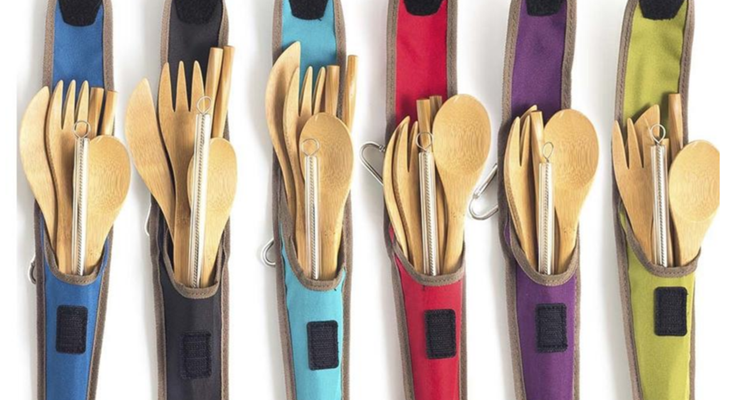
If work has you too busy to carry lunch around every day, or you’re just traveling, worry not: you still can be green! Keeping a wooden utensil set, glass straw, cloth napkin, and stainless steel water bottle in your bag at all times will let you enjoy a meal without creating much waste. The biggest hurdle here is simply remembering to tell the cashier “no straw, plasticware, or napkin please!”
8. Compost Your Food Scraps
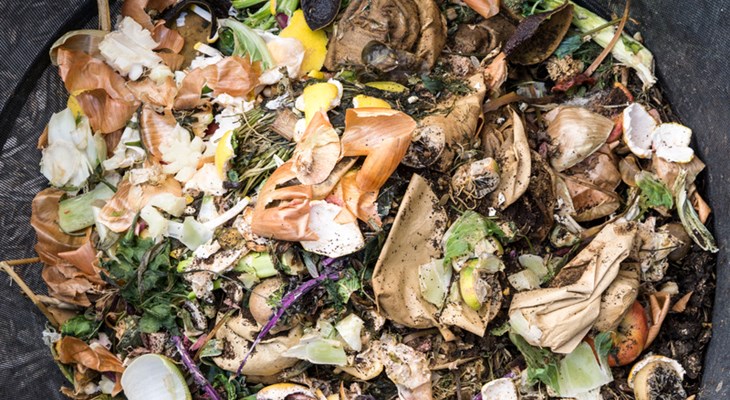
Did you know food waste is one of the largest contributors of greenhouse gases? That’s right, not only does the food we eat contribute to climate change, but so does the food that we don’t. Luckily, there is a simple way to solve that: composting! Composting allows us to not only return the nutrients from food waste back to the soil instead of rotting in a landfill, but it also reduces the amount of methane released from food breakdown. You can compost your food at home with a food recycler or worm composting bin, through a local farm, or possibly even your municipality depending on where you live. A quick Google search will find you all your local options.
Have a quick tip on how to be low-waste while eating more plants? Let us know by using #EatPlantsForAChange and tagging us @CompassionUSA on Facebook, Instagram, and Twitter!
Want more resources like this? Head over to www.plantsforachange.com to sign up yourself, friends, and family for helpful plant-based tips, tricks, recipes, and news!
P.S. Check out and share our friend Sedona Christina’s YouTube video on healthy habits and hacks to #EatPlantsForAChange and reduce your waste!
